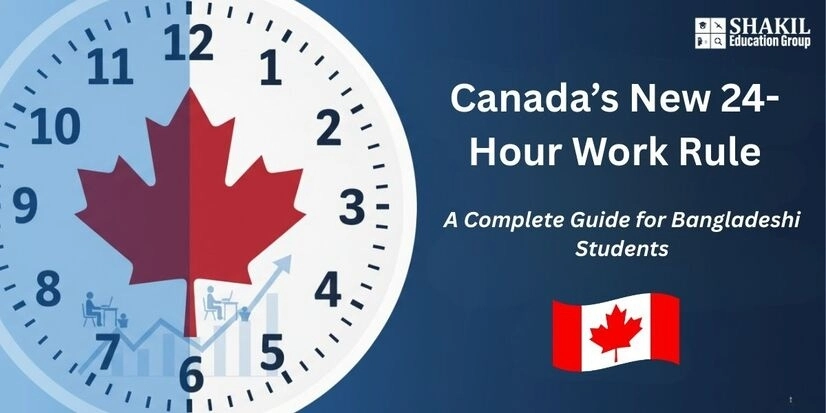Canada’s updated work-hour policy has created a lot of noise in Bangladesh. Students keep asking the same questions: “Can I finally cover my living expenses through part-time work?”, “Does this mean Canada is cheaper now?”, “Will this help with my visa?”
Here’s the thing: the new 24-hour work rule is helpful, but not in the way many people think. It’s not a shortcut, it’s not a guarantee of financial independence, and it doesn’t replace proof of funds. What it does is give students more flexibility and breathing room—if they plan responsibly.
This guide breaks down the rule clearly so you know exactly how it affects your study plan, your finances, and your visa application.


